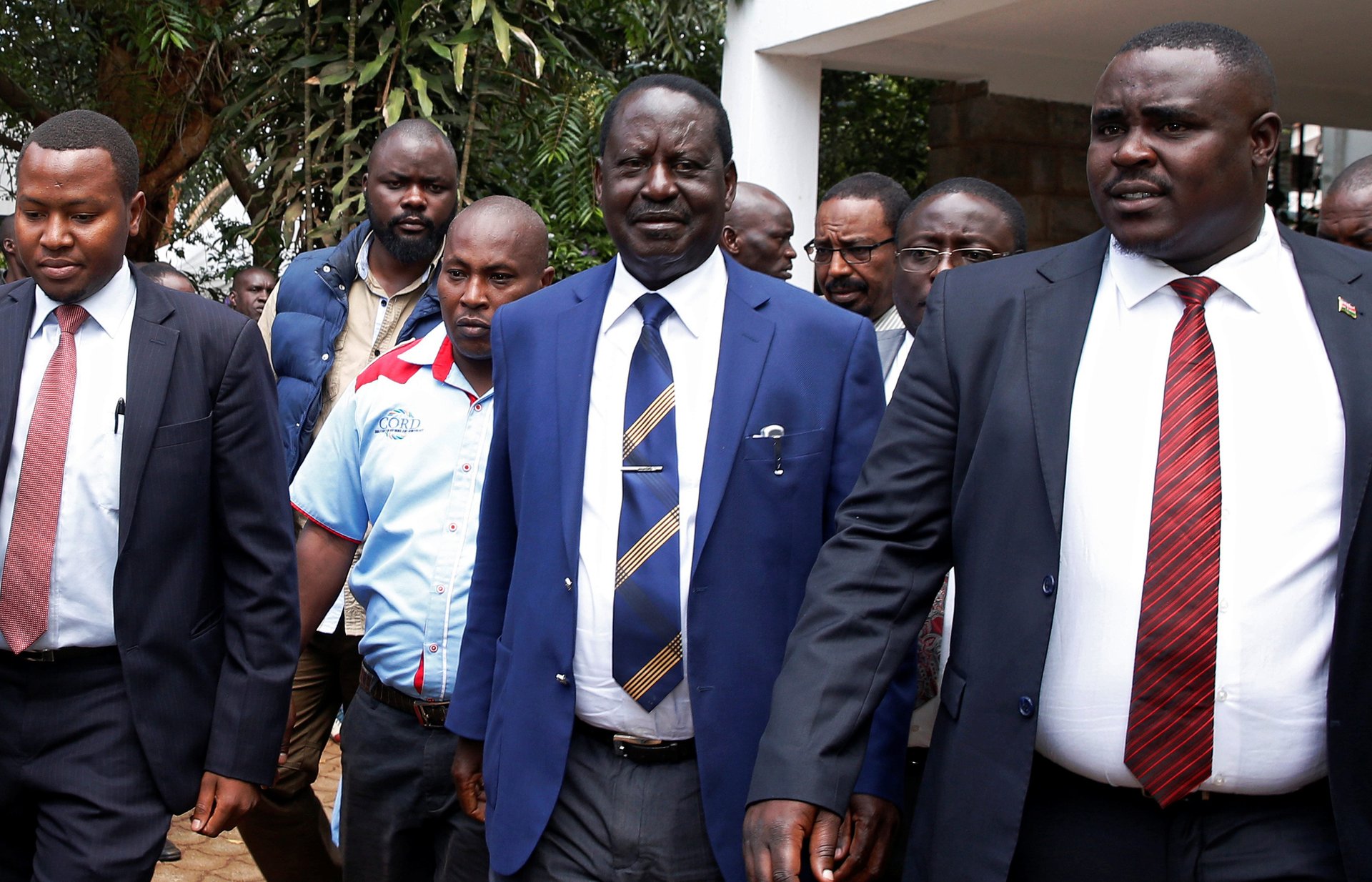Kenya’s opposition is advocating peaceful resistance but that isn’t easing fears or frustration
Kenya’s opposition leader Raila Odinga has called for a “people’s assembly” that will be responsible for putting in place a program for an economic boycott, peaceful protests, and constitutional change.


Kenya’s opposition leader Raila Odinga has called for a “people’s assembly” that will be responsible for putting in place a program for an economic boycott, peaceful protests, and constitutional change.
Rejecting the Oct. 26 election as a “sham” and “a meaningless exercise,” Odinga said the forum will work to safeguard Kenya’s democracy, and scrutinize the state’s ability to deal with political strife, inequality, marginalization, and corruption. Accusing the government of seeking “to criminalize dissent,” Odinga said the opposition NASA coalition will guard their right to dissent “by exercising it.”
“If there is no justice for the people, let there be no peace for the government,” he said on Tuesday in a much-anticipated speech in the capital Nairobi on Tuesday.
Odinga’s speech comes a day after the election commission declared president Uhuru Kenyatta the winner of the repeat presidential vote on Monday (Oct. 30). Kenyatta garnered over 98% of the vote, a total of 7.4 million votes. Odinga quit the repeat polls in early October, saying the electoral process won’t be free and fair. He also called on his supporters to boycott the vote, and turned his NASA opposition coalition into a resistance movement.
The Oct. 26 elections plunged the east African nation into a period of uncertainty. The duration before, during, and after the election was also marked by protests, looting, arson, and the killing of civilians. Amnesty International said that police used live ammunition against protesters in opposition strongholds, noting the “disproportionate” response bore “a closer resemblance to vengeful attacks than legitimate policing.”
Beyond questioning the credibility of the election, opposition members have also cast aspersions on the legitimacy of Kenyatta’s win. Some have also said that the low turnout among the 19.6 million registered voters showed that the president wasn’t as popular as previously stated, and was thus undermining Kenya’s democracy.
To avert a national crisis, civil society organizations have called for the creation of a one-year transition period to help reform the election commission and allow it to conduct a fair poll in 2018. Others like the National Council of Churches of Kenya called for the establishment of an inclusive government, and for a constitutional amendment that would allow the appointment of a prime minister’s position.
But Kenyatta’s administration has sent mixed signals over how it aims to engage Odinga and his movement. On election day, Kenyatta said he will reach out to Odinga after the polls. But deputy president William Ruto has taken a hard stance since, even comparing Odinga to Joseph Kony, the head of the relentless Ugandan cult Lord’s Resistance Army.
While ordinary Kenyans will be relieved that Odinga didn’t use his platform as a call to arms, that won’t allay the feeling of precariousness that has gripped the country for months now. Odinga’s call for resistance could also deepen the level of suspicion many of his supporters already have of the government and its institutional frameworks.
Odinga has called Kenyatta and his deputy “autocrats” hungry for power. “We will not allow megalomaniacs to destroy the freedom and democracy that generations have sacrificed and worked so hard for,” Odinga said in his speech.